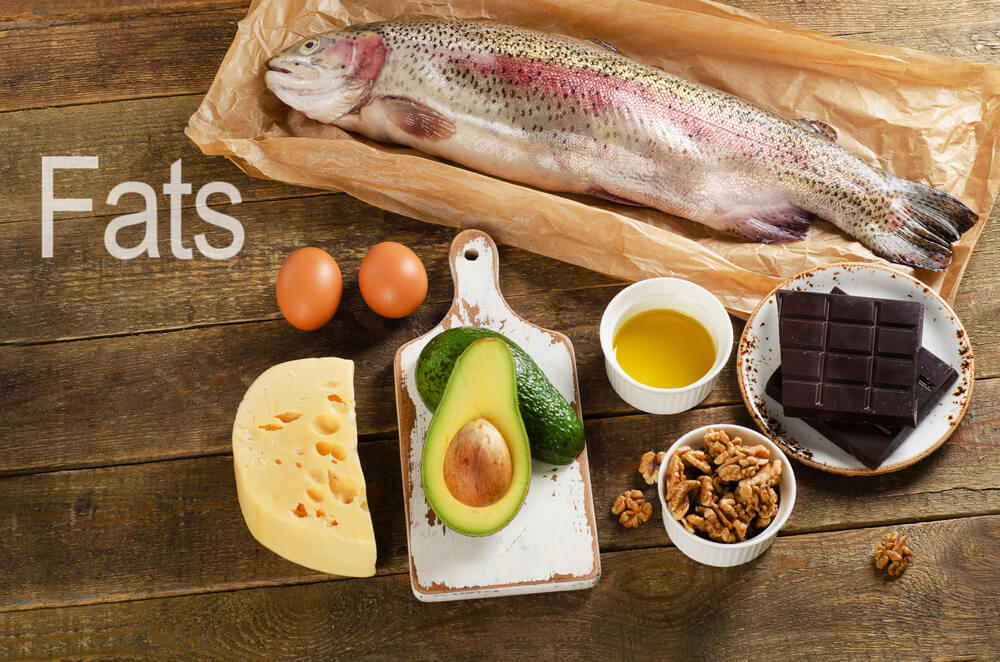
Fat is not the enemy! In fact, eating the right fat can make or break your diet. Here are the best high fat foods!
Fat-free was a raging simple diet plan trend for decades. These days, people are starting to realize that you still need fats in your diet. If you check out a nutrition label, you’ll notice the fats section is broken down even further. What’s important to know is that there are different types of fat. Some high fat foods are bad for you, but some are also good for you.Some high fat foods are bad for you, but some are also good for you.
The worst type of dietary fat is trans fat. Research shows that for every 2% of calories from trans fat consumed daily, the risk of heart disease rises by 23%. Trans fat is created when foods are processed so that oils are transformed into solids to prevent them from turning rancid.
Food label ingredient lists typically write this as “partially hydrogenated oil.” A panel of experts assembled by the Institute of Medicine concluded that there are no known health benefits of trans fats. Fortunately, since the FDA required that trans fats be listed on food labels in 2006, the food industry has been attempting to reduce and remove the presence of trans fat in products ever since.
Another type of fat that isn’t great for you, but isn’t as bad as trans fat, is saturated fat. It’s solid at room temperature and can cause clogging in the arteries and in the heart. However, research has provided conflicting results on the relation between saturated fat and cardiovascular disease. Many studies show that there is no apparent relation. To err on the side of caution, try to keep your saturated fat intake down to 10% of calories ingested per day.
But now the good news: There are healthy fats! Monounsaturated fats and polyunsaturated fats are the good guys. Unlike the others, these fats are liquid at room temperature. Polyunsaturated fats are actually essential fats. This means your body needs them to perform its normal functions. In addition to these two, omega-3 fatty acids and omega-6 fatty acids have been found to potentially prevent and possibly treat heart disease and stroke.
So what should you eat to obtain the right fats?
Here’s a list of 10 high fat foods that are healthy!

#1 Fatty Fish
While fish is considered the leanest meat, it’s also brimming with omega-3 fatty acids. Fatty fish offers good amounts of EPA and DHA. These reduce the risks of coronary heart disease. The American Dietetic Association recommends salmon, tuna, mackerel, sardines, herring and trout. That’s a diverse list of tastes that should satisfy whatever you prefer.
Since fish also happens to be a lean protein, it’s a great option to eat after your workout and also has the best fish oil for bodybuilding . When you are training, your body’s muscles break down and it’s important to get protein right after to fast track and help the muscle rebuilding process. Fish can also be prepared in a variety of fashions to offer up diversity to your meal planning .
But, how the fish is prepared can certainly affect its health value. and fish oil benefits, Dr. Keecha Harris, PH, RD, a spokeswoman for the American Dietetic Association told WebMD that, “It’s always best to broil, grill, or steam these foods.” Chowing down on a battered and fried batch of fish and chips isn’t exactly proposing great nutritional values for your body. Opt for the least greasy way!

#2 Avocados
These smooth fruits (yep, they’re technically fruits) are about 77% fat by calories! Fortunately, they have the good type of fat – monounsaturated. Specifically, oleic acid, which is linked with many health benefits.
Avocados are one of those easily added extras and avocados are also good for bodybuilding. They go with any meal of the day and make a great topping for Mexican food, of course. Guacamole can also be loaded with corn and tomatoes to up the nutrient value even more. You can whirl avocado into hummus. Spice up your deviled eggs or add a side to your breakfast eggs. You could also swap it for mayo in sandwiches and salads, or smooth out a BLT.
Also, avocados have a good amount of fiber. They have 40% more potassium than bananas. They also have low amounts of sugar, contain many essential vitamins and minerals, and have the potential to lower LDL cholesterol and triglycerides.
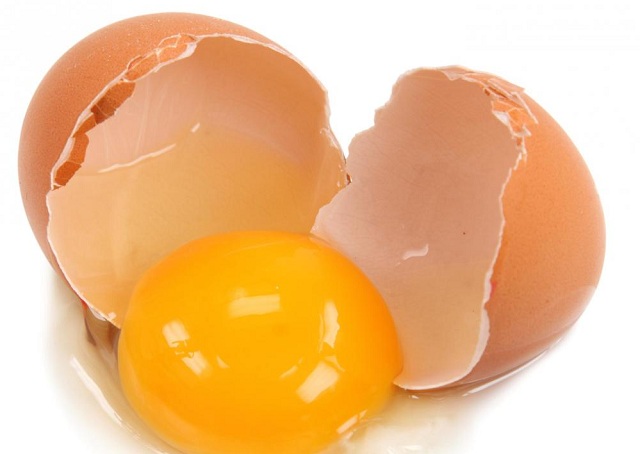
#3 Whole Eggs
Generally, it’s advised to eat egg whites since the yolk has a lot of cholesterol. But, research has shown that most people experience little to no effect from eggs to the “bad” cholesterol in their blood. Egg yolk actually has many vitamins and minerals including choline. That’s a nutrient for the brain that most of us don’t get fair amounts of. Also, egg yolk has lutein and zeaxanthin. These protect the eyes and reduce the risk of eye diseases.
Eggs can be prepared for a traditional breakfast. Of course, the healthiest options probably being scrambled or an omelet with diced veggies. You could even have them as an on-the-go snack, such as hard-boiled eggs. And the brightest side is that eggs are one of the most inexpensive items at the store. This is truly a food item you can easily find and in addition eggs for muscle gains!
#4 Nut Butters
Fatty, oily and delicious – peanut butter, almond butter, walnut butter and cashew butter to name the best! Nut butters can reduce LDL cholesterol (that’s the bad kind) and it’s never too early to watch your “bad” cholesterol levels. Cholesterol levels directly affect your heart health and we all know how vital it is to have a healthy heart in fitness.
Almond butter has the most fiber of the nut butters and can help in your weight loss journey. But walnut butter is packed with omega-3 fats. This actually helps trigger a hormone that indicates you’ve had enough to eat (now that’s a vital for your weight loss diet plan).
Nut butters are excellent to add to any sandwich and go great with fruits and veggies. Peanut butter makes a delicious pairing with apples, celery sticks and carrots for example! They also have a decent amount of protein. This is especially vital for fitness gurus and anyone trying to tone. Protein is essential in the muscle building process and nut butters are a great addition or alternative to just eating meat.
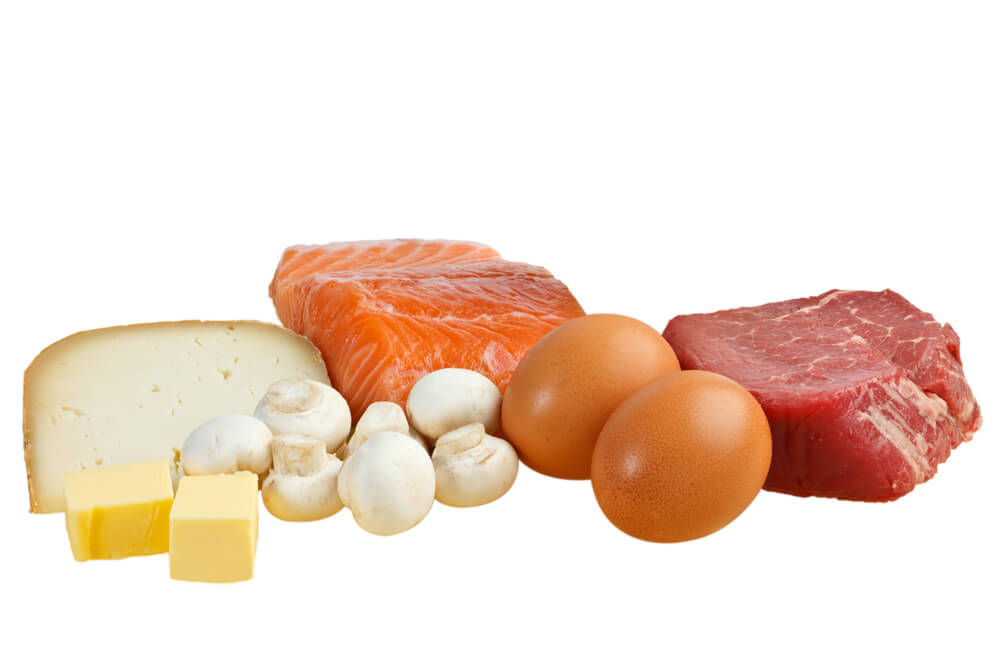
#5 Cheese
Not only fatty, but powerfully fatty. Cheese has fatty acids that have the potential to reduce the risk of type-2 diabetes. It’s also a rich source of calcium, vitamin B12, selenium and phosphorus. And, cheese is another good source of additional protein! Calcium helps build strong bones, but also helps your muscles contract. Overall, cheese packs a serious health and fitness punch.
Research published in the Journal of the American College of Nutrition showed participants that consumed higher levels of calcium and low-fat dairy products had less abs fat. Another study conducted at the University of Tennessee concluded that calcium intake from dairy can lead to greater fat loss.
How many meals can you think of that have cheese?
Yeah, the list is never-ending. That’s why cheese is a great choice for high fat but healthy foods!
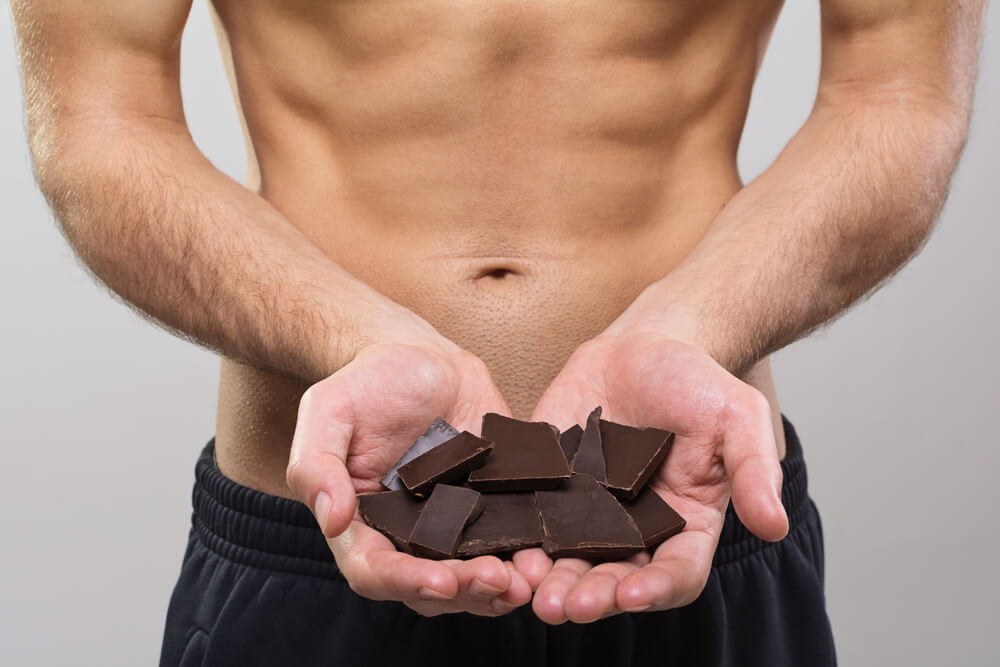
#6 Dark Chocolate
Mmmm, chocolate! Who knew it was fatty?
It certainly doesn’t taste like it, but dark chocolate actually has fat at around 65% of calories. However, it also has 11% fiber among other nutrients, is filled with antioxidants and is actually on the dessert list (because desserts can be healthy).
The antioxidants in dark chocolate can lower blood pressure and help protect against the oxidization of LDL cholesterol in the blood. Also, research has shown that the consumption of dark chocolate can improve brain function.
Not enough? It can protect your skin from UV rays.
There’s also been research on dark chocolate and heart disease.
The results?
People who eat dark chocolate five or more times per week are less likely to die from heart disease. Now that’s some serious reasoning to start eating it!
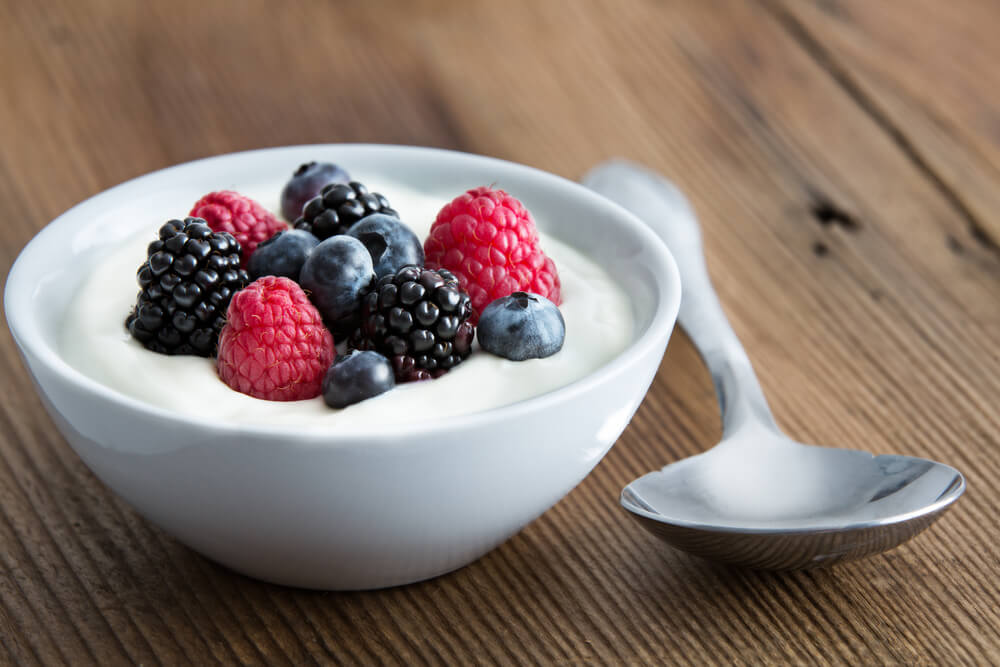
#7 Yogurt
Yogurt is unique on this list of healthy high-fat foods.
Why?
It has probiotics. When you’re sick, you take antibiotics to eliminate the threat lurking in your body. But on a regular basis, your body benefits from probiotics. They fill you up with active, good bacteria in your digestive tract.
There has been quite a bit of research conducted on the benefits of yogurt and you may be surprised to know just how healthy it can be. Yogurt may drop your risk of high blood pressure and yeast infections. Since yogurt is made from milk, you’ll also receive the benefits of dairy – calcium, vitamin B-12, magnesium, and potassium.
To make your yogurt snack even more nutritious, mix in a tablespoon of flaxseed. That will add almost three grams of fiber and about three grams of omega-3s. Flaxseed is actually also high in fat, but the good unsaturated fat and omega-3 fatty acids. You can also cut up and mix in some fruit to bump up the flavor and health perks.
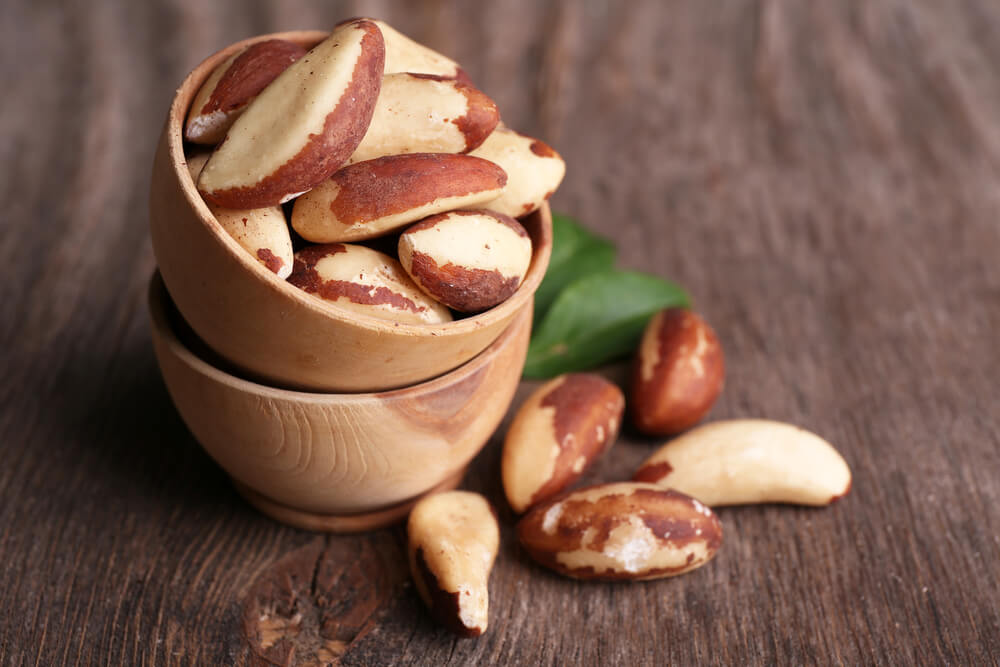
#8 Nuts and Seeds
You may be surprised to know just how fatty nuts are. In 100-gram servings, almonds have 78% calories from fat. Cashews aren’t far behind. They have 67% calories from fat. Macadamias have a whopping 93% calories from fat. Meanwhile, walnuts have 87% calories from fat. While this proves to be a fatty bunch, they’re also really healthy for you!
Nuts are a great source of fiber, plant-based protein, vitamin E and magnesium. They also have the good fats – monounsaturated as well as omega-3 fatty acids! Research has shown that nuts can lower your LDL cholesterol and reduce the risk of blood clots.
Seeds are also high in the fat contents, but they’re great for your health. Seemingly less common in mainstream food, seeds can add a new variety to your diet. As mentioned, flaxseed, for example, has the good fats and it has fiber.
Chia seeds are also little wonders that pack a healthy punch. They’ve been shown to aid in weight loss, help regulate blood sugar levels, alleviate constipation, provide plant-based protein and give you a pre and post workout enhancement!
For consumption, you can mix flaxseed and chia seeds into things like yogurt or drinks like coconut water or shakes! You may also find supplements beneficial as these are naturally occurring plants and the supplements will only aid in benefiting your body.
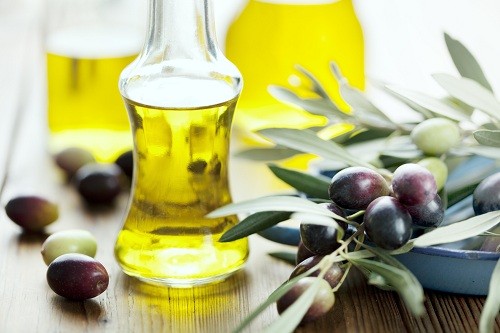
#9 Olives
Legends, myths and some history illuminate that Ancient Greeks discovered the health benefits of olives and purposely incorporated them into their diet in copious amounts. Hence, the current love affair that the Mediterranean has with olives.
One cup of black olives offers about 15 grams of fat. Yeah, that’s a lot! But, it’s mostly monounsaturated. You know, the good kind. And, olives provide a slew of healthy benefits! They have a phytonutrient called hydroxytyrosol. This has been linked with cancer prevention and potentially helping prevent bone loss. Research also suggests that olives help in treating inflammation and allergies. They also have antioxidant nutrients.
So these little toppers are more than an addition to your martini or salad. They offer a whole world of healthy nutrients for your body!
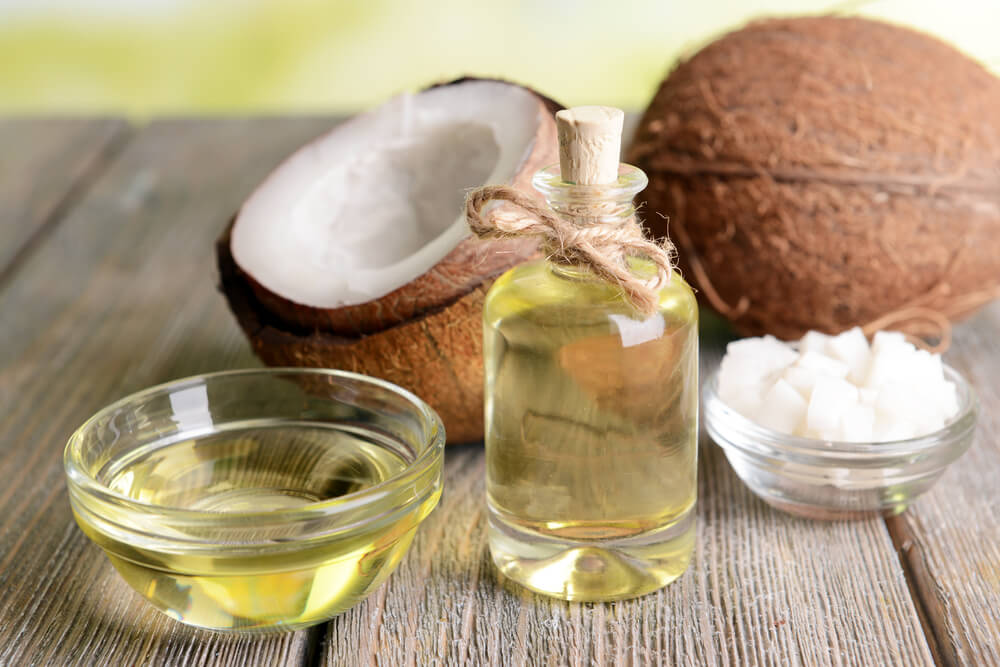
#10 Certain Oils – E.V.O.O. and Coconut
If you’re into cooking, then you know about E.V.O.O. (extra virgin olive oil). Not only does it delicately flavor your food as you cook, it’s also healthy fatty oil. It’s got antioxidants, as well as vitamins E and K. It has been shown to lower blood pressure. So eat like an Italian and dip your bread in some olive oil!
Coconut oil is another healthy fatty option. The interesting thing about coconuts and coconut oil is that their fats contain mostly medium-chain fatty acids. These metabolize differently. Research suggests that these medium-chain fatty acids can actually suppress appetite. That’s certain to benefit your weight loss goals.As you can see there are many perks of coconut oil.
Conclusion
The fat-free option isn’t always your friend. Your body needs healthy fats to function properly. Just remember to choose the good fats (monounsaturated and polyunsaturated) over the bad fats (trans and saturated). And keep your diet in check by keeping track of your daily amounts. Proper fitness habits means paying attention to everything you eat. It will make a difference in how your body will grow and how it will work when you train.
Don’t opt out of the fats!
Be smart.
Feed your body what it needs!
By Alyssa Bright
Latest posts by Terry M (see all)
- Garage Gyms - Aug 1, 2018
- Kettlebells – Why They Should Be Added To Your Routine. - Jul 24, 2018
- Weight Belts: What Are They Really For? - May 31, 2018











[…] will need to come from fats. Don’t go for the saturated fats, but instead try to focus on healthy fats. For example, fish oil, olive oil, and avocados are all natural, healthy fats. Nuts are healthy […]
[…] building muscle, i suggest quality proteins, carbohydrates, and dietary fats such as […]
[…] [Healthy fats]. (n.d.). Retrieved from https://gymjunkies.com/10-high-fat-foods-that-are-healthy/ […]
Awesome post! I’ll keep note of these high fat foods. Thanks a lot for sharing!
[…] tough financial times, Varvara still found the means to secure a healthy diet. On the average day, shed eat a slice of bread, an egg, noodles, milk and fruit […]
[…] tough financial times, Varvara still found the means to secure a healthy diet. On the average day, shed eat a slice of bread, an egg, noodles, milk and fruit […]
[…] To keep fit and healthy, each of your meals should contain a balance of protein, fat, and vegetables. Note, however, that the fat being talked about here is healthy fat. […]